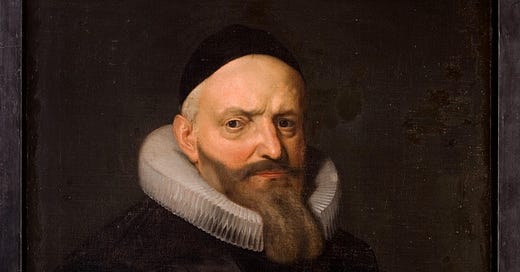The Dutch Theologians at the Synod of Dordt on the Baptism of Slave Children
Translated from Early Sessions of the Synod of Dordt (V&R, 2018), pgs. 149-50.
[Authors: Antonius Walaeus; Antonius Thysius; Johannes Polyander; Sibrandus Lubbertus; Franciscus Gomarus]
RESPONSE OF THE PROFESSORS OF MOST HOLY THEOLOGY IN THESE BELGIAN PROVINCES TO THIS QUESTION PROPOSED IN OUR NATIONAL SYNOD BY THE DEPUTIES OF THE PROVINCE OF NORTH HOLLAND:
WHETHER CHILDREN BORN OF PAGAN PARENTS AND NOW ADOPTED INTO CHRISTIAN FAMILIES SHOULD BE BAPTIZED, IF THOSE WHO OFFER THEM FOR BAPTISM PROMISE UNDER OATH THAT THEY WILL EDUCATE THEM OR ENSURE THEIR EDUCATION IN THE CHRISTIAN RELIGION
These children are either infants or those capable of instruction in the sacred religion.
Regarding the former, if they are under the authority of a Christian head of household, such that neither parents nor non-believing masters retain any further right over them, we judge that they should be baptized, according to the analogy of the law of circumcision of foreigners in Abraham’s family, Gen. 17, vv. 12, 13, 23. However, under the condition that suitable guarantors, warned by pastors, promise that they will educate or ensure the education of those infants in true piety.
We do not think the latter should be baptized before they have been properly instructed and have made a confession of their faith, according to Christ’s instruction, Matt. 28:19: “Teach all nations, baptizing, …,” and the example of Philip asserting it is permissible to baptize if you believe, Acts 8:37.
[Written two days later…]
To our previous response to the question posed by the Amsterdamers concerning children of pagans adopted into Christian families, we judge these precautions should be added due to what we have learned in our synod after our response was presented:
1. That Christians should never send back to the pagans, or sell, or allow to be sold by others, the children of pagans whom they have once received into the number of their household.
2. That not only should guarantors promise the correct and faithful instruction of those infants, but also the whole church, as far as possible, should take special care of this matter.
Professors of Most Holy Theology in these Belgian provinces.
Given on December 3, 1618


